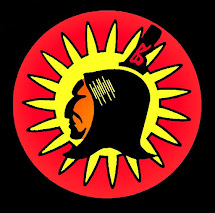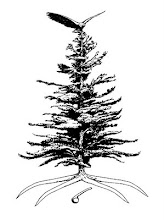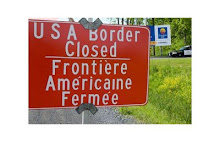Mr. Paterson; be aware, this bill will not exist in a vacuum. The State legislature; be careful what you wish for!
Sunday, December 14, 2008
The State Should Be Careful for What It Wishes For
Paterson's signature of the tax bill will not end Native retail of tobacco. It will, however cost the State billions of Master Settlement Act funds. These are funds that George Pataki borrowed against years ago for previous budget woes. These funds come to the State from Big tobacco as a additional tax to the states based on sales. Since the MSA does not apply to products we manufacture, the State will be cutting its nose to spite its face. This new bill will force Native retailers to do what they should have done years ago when big tobacco began its campaign against Native retailers. That is; stop selling their products. There are more than enough Native products to stock our shelves and keep our tobacco businesses successful. Native product has been chipping away at the market share held by the big guys on its own accord. We would be in a better position, however, if our retailers would make more of a concerted effort to drive their customers toward Native products. A famous author and Indian hater once referred to Native people as those that "lick the hand that smites them". Our retailers that cling to their Marlboro sales do just that. Philip Morris has used us, abused us and laughed all the way to the bank as we built our businesses. We need to ween ourselves from those that "smite" us and from State licensed wholesalers as well. Our Native manufacturers have a strong position against any State or Federal restrictions of trade of Native manufactured goods for sale on Native lands. That is the battle we should be fighting and it is non-negotiable. If the State wants to criminalize our businesses they will spend millions while they continue to lose millions. If our businesses are forced to operate in the shadows, they will. And the State will be worse for it. Native leadership will be forced to reevaluate their cooperative agreements, including their gaming compacts and the revenue the State collects from those agreements.
Mr. Paterson; be aware, this bill will not exist in a vacuum. The State legislature; be careful what you wish for!
Mr. Paterson; be aware, this bill will not exist in a vacuum. The State legislature; be careful what you wish for!
Subscribe to:
Post Comments (Atom)













![-[]-[]-/\-[]-[]-](https://blogger.googleusercontent.com/img/b/R29vZ2xl/AVvXsEjLoXmKO8PJVQ5pZ2q7GX7nFKw8H2tb28dxt-o10FUBNtOGszWhWoLB7tgjtMgtISpuSxNW3fcDxfuSS2DqojsdjNJ1lVggyUS374PnzsDbOhk4ukvtTunFQcyfkckZeBzcLbri4LDYN_E/s214/29-03-A-voice-from-the-Akw-.jpg)





1 comment:
I mentioned on a previous post that there may be a push to get a bunch of these pieces of legislation through the system prior to the new administration taking office. I recognize how insignificant our issues will be to this "change we can believe in"; however there does seem to be a push to get this new Rahnatakias to revisit the UN Declaration of Indigenous Rights. The US has been very successful at keeping our issues out of international scrutiny, but we may gain some visibilty over this Declaration issue. Because protections of indigenous economies are a part of this document there may be an added incentive to unload on us before the subject really arises.
Post a Comment